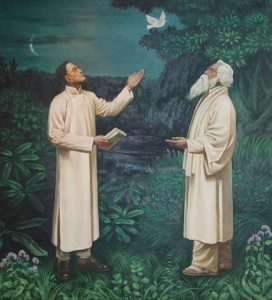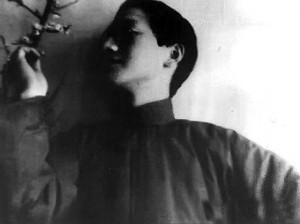
After reading about the Chinese poet Xu Zhimo on my blog, my friend Diana offered me two books: Bound Feet and Western Dress by Pang-Mei Natasha Chang, and Agnes Smedley, The Life and Times of an American Radical by Janice and Stephen MacKinnon. Bound Feet was the story of the poet’s first wife and Agnes Smedley was at one time the poet’s lover. Apparently Pearl Buck also had an affair with him. Xu Zhimo died in a plane crash in 1931. He was 34 years old.
Xu Zhimo was the Chinese Shelley. A proponent of free love, a worshiper of beauty, he was way ahead of his times. Bound Feet retold the struggles between ideology and tradition. But it was also about love and how it triumphed above all the conflicts. His family and friends, including his first wife, though hurt by his infidelity and irresponsibility, loved and respected him for who he was.
How modern are we, living in the 21st Century? What progress in freedom and tolerance for the arts has China made since the times of Xu Zhimo? In the news, a photo shows a parade of Chinese couples in tuxes and snow white bridal gowns. But to me the bandages of bound feet are still visible and the dress remains an illusion.

